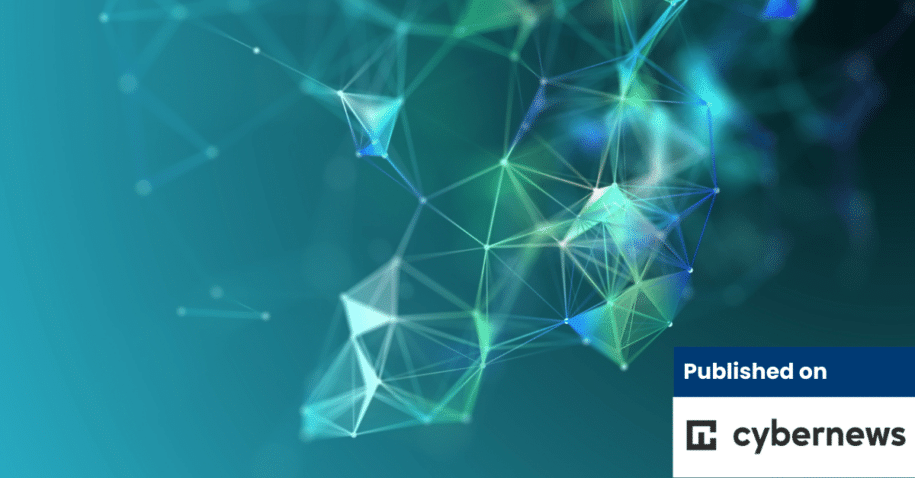Interview: 'Digital solutions and cloud are vital in transforming trade'
For many companies, manually handling and reviewing paper documents is a hassle. There’s always the possibility of sensitive content getting misplaced or falling into the wrong hands.
Many organizations are still reluctant to digitize their paper-based processes, despite the plethora of technologies available to them. For trade, failing to effectively embrace digitization across operations may have significant consequences, especially when it comes to documentation, cyber security, and trade-based financial crime.
In this interview, Nigel Hook, TradeSun CEO, speaks with Cybernews about how digitization and automation enhance processes across global trade.
Let’s go back to the very beginning. How did TradeSun evolve over the years?
NH: TradeSun has a rich history. It was founded in 2018 as a spin-off of DataSkill, an advanced AI analytics company based in San Diego with a long history of serving the intelligence industry. TradeSun was founded in response to a need: to solve the unique issues affecting trade and trade finance – an industry that is heavily reliant on paper-based and manual processes and which can be greatly improved with digitization and automation.
Can you tell us a little bit about your platform? What technology do you use to analyze documents?
NH: The platform is transforming the end-to-end processing of complex trade documents. It intelligently extracts data from documents by using natural language processing and optical character recognition – these identify and classify documents. We use Neuro-Symbolic Artificial Intelligence to detect content and position data. Essentially, these technologies enable us to standardize data ready for compliance screening, including for potential sanctions breaches and money laundering, as well as examining the documents for required commercial checks under trade rules.
We are working with an array of leading third-party data providers that further enrich the platform with real-time data feeds, and we are working with top global banks to establish the business requirements for global trade and develop compelling use cases to serve the goals of trade finance and working capital departments in banks around the world.
What are the most common issues organizations run into on their digital transformation journey?
NH: Trade is a complex industry with supply chains reaching around the world and transactions involving many, geographically dispersed stakeholders, jurisdictions, and goods. The decentralized nature of trade has made it difficult for the industry to transform when compared with other sectors. Additionally, trade lacks global standards and universal policies for data-sharing and technology, and companies may also be concerned about how technology impacts security processes – these can hold organizations back in their digital transformation journeys.
Have the recent global events uncovered any flaws or gaps in your field?
NH: It’s clear that digital solutions and cloud are vital in transforming trade. With regards to tightening international sanctions amid the Russia-Ukraine war, it’s apparent that banks and corporates need more effective ways to ensure they are not inadvertently breaching sanctions. Because of its complexities, criminals exploit global trade by manipulating documents and forming illicit networks and entities to breach sanctions, launder money and shift assets across borders illegally.
In the wake of the global pandemic, banks are realizing the need to deploy cloud-based solutions that allow business units to collaborate on-demand, regardless of their location or time zone, while still maintaining security over their sensitive business information.
What risks can an organization be exposed to if the proper document handling and analysis solutions are faulty or not in place at all?
NH: Organizations can be exposed to significant risks, hefty fines, and reputational damage. What makes these risks all the more significant is that they are, in some cases, unquantifiable. If trade documents are incorrectly examined then that poses an open-ended risk to all parties involved in a transaction – there is no tolerance for banks and corporates that do business with entities, which are involved in money laundering or tax evasion schemes.
Why do you think certain companies still hesitate to digitize various processes?
NH: Global trade must conform to international laws, policies, and conventions which intelligent machines have had limited success interpreting autonomously until now. In large businesses, decades-old legacy systems that work, but not well, can act as a barrier to digitization, while concerns over cyber security may also hold firms back from digitization. Additionally, strategies must reflect changing economic fundamentals and industry dynamics. In smaller companies, digital solutions can be perceived as difficult to learn, and there may be budget constraints for training programs.
What aspects of our daily lives do you hope to see automated or enhanced by technology in the upcoming years?
NH: Technology will continue to enhance our lives at a rapid pace, from the way we work to how we travel, manage money, and socialize. Our hope is that more repetitive tasks can be further automated for businesses, large and small so that employees can upskill and take on higher-value jobs. Data science will also be an integral part of achieving this. If we look at Tesla, the electric car business also founded out of California that is built on automation software, the data volumes the company ingests are huge.
As technology becomes a significant part of everyday life, what security practices do you think are essential nowadays?
NH: Security needs to be addressed at a leadership level within organizations. This means that C-suite executives must be informed about current and future risks to the company to ensure that security serves as a business enabler in its mission to protect the organization. TradeSun uses the shared responsibility model within Amazon Web Services by ensuring that the platform is designed with a default-deny and least-privilege access model to mitigate cyber threats.
Security is a top priority and is present within all aspects of the business, from our layers of enterprise-grade security, highly available and disaster-proof solution architecture, on-demand global business operations, and employee awareness of security best practices. As part of this, we leverage cloud computing as there are many opportunities to deploy a secure-by-design solution, as well as to ensure company and client personnel are educated in cyber threats where relevant.
Share with us, what’s next for TradeSun?
NH: Trade is a proven way to fuel growth across economies. Our mission is to reduce financial crime and risk in trade so that banks can support smaller companies – the engine of growth for economies. At the heart of this mission lies trusted data and AI, and we continue to enrich the TradeSun platform with more data and advanced technology to enable predictive and prescriptive insights that support our mission. As well as being a key enabler of prosperity, trade is also a relatively large contributor to global emissions. We are working with partners to advance sustainability in trade through robust reporting and accountability.

